Transforming Communities Through Beekeeping and Sustainable Farming
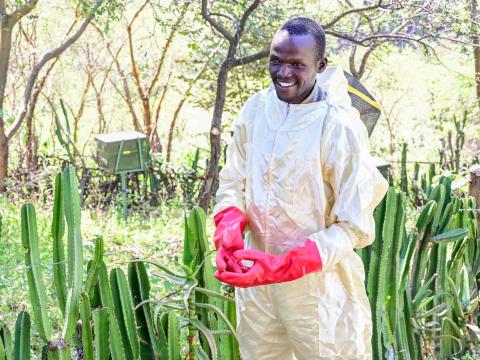
With his commitment to sustainable agriculture and expertise in beekeeping, 29-year-old lead farmer Richard Mnang’at from Cheseto village, West Pokot County, has become a catalyst for change in his community.
In 2022, Richard adopted the Farmer Managed Natural Regeneration (FMNR) approach on his previously rocky, unproductive one-acre plot, which suffered from severe erosion due to limited tree cover. After enclosing the land and nurturing regenerated saplings, he observed increased tree cover, pasture growth, and enhanced farm productivity.
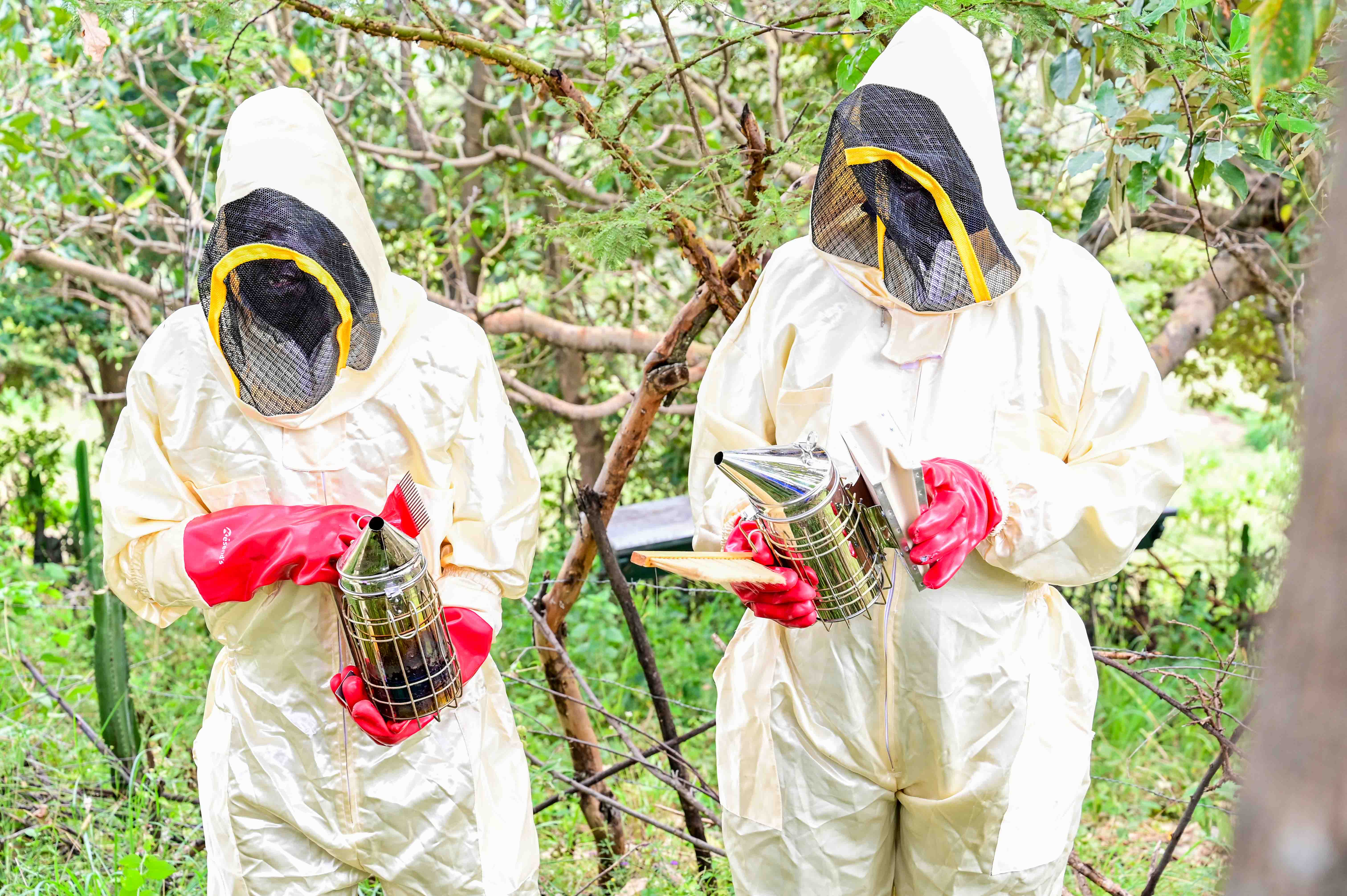
Richard’s journey advanced further in May 2023 when he was chosen as one of 80 youth lead farmers supported by World Vision’s Central Rift Farmer Managed Natural Regeneration Scale-Up Project (CRIFSUP). The initiative, funded by the Australian Department of Foreign Affairs and Trade (DFAT) through the Australian NGO Cooperation Program (ANCP), enabled him to attend artisanal training at Baraka Agriculture College. There, he gained skills in queen rearing, bee management, hive construction, and value-added processing of honey products.
“I feel fortunate to have been selected for training at Baraka. World Vision’s support has transformed me into a professional beehive constructor,” says Richard.
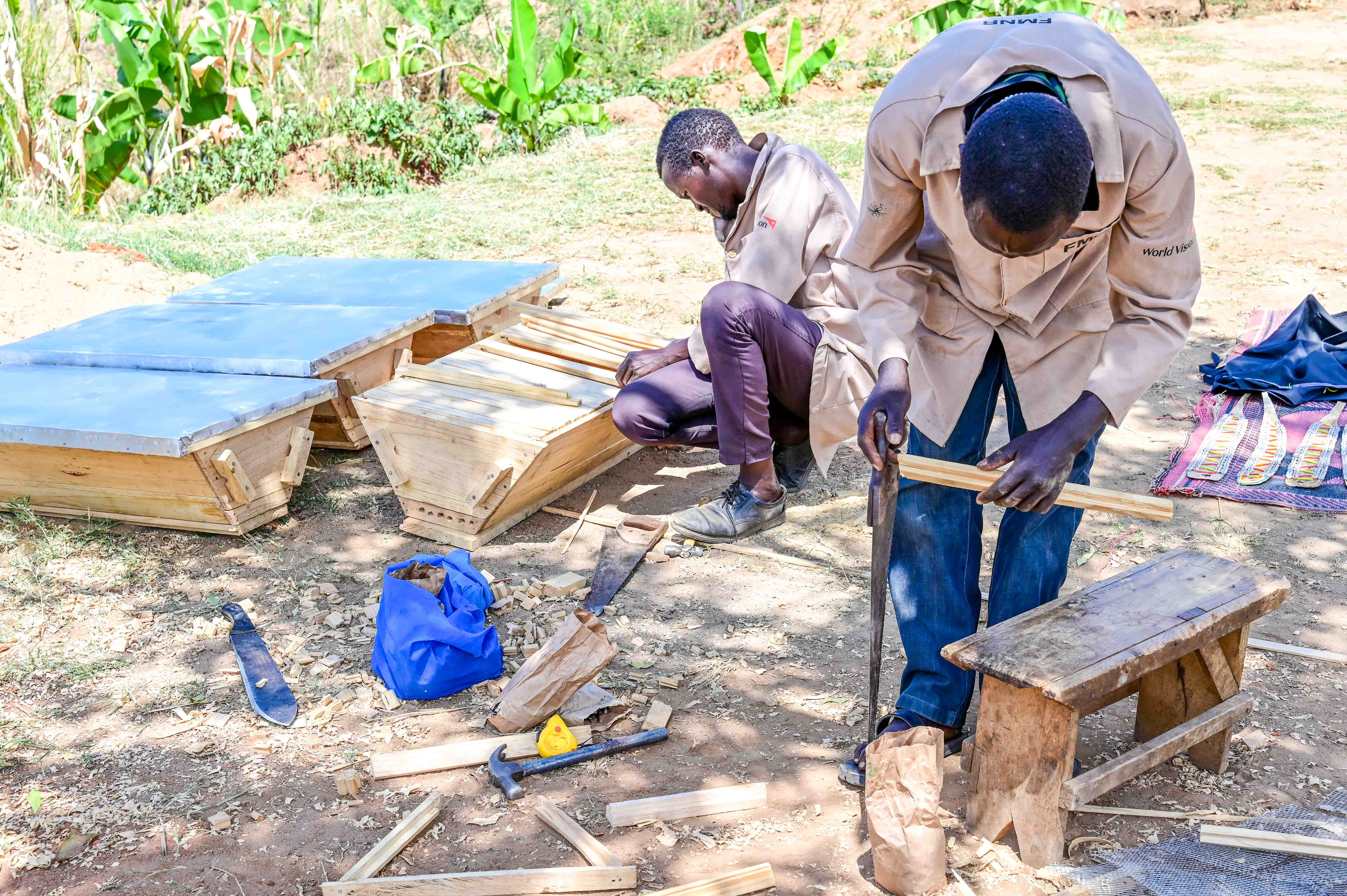
Richard’s beekeeping venture has significantly increased his household income. He now sells honey, constructs hives for fellow farmers, and offers paid honey harvesting and inspection services. His success has inspired others: he provides discounted hives to local farmers and trains them in sustainable beekeeping practices. Richard emphasises that apiculture is low-labour, space-efficient, and ideal for the area’s climate, especially as tree conservation efforts expand.
“Beekeeping is profitable and eco-friendly. Unlike goats, bees don’t damage crops,” he notes.
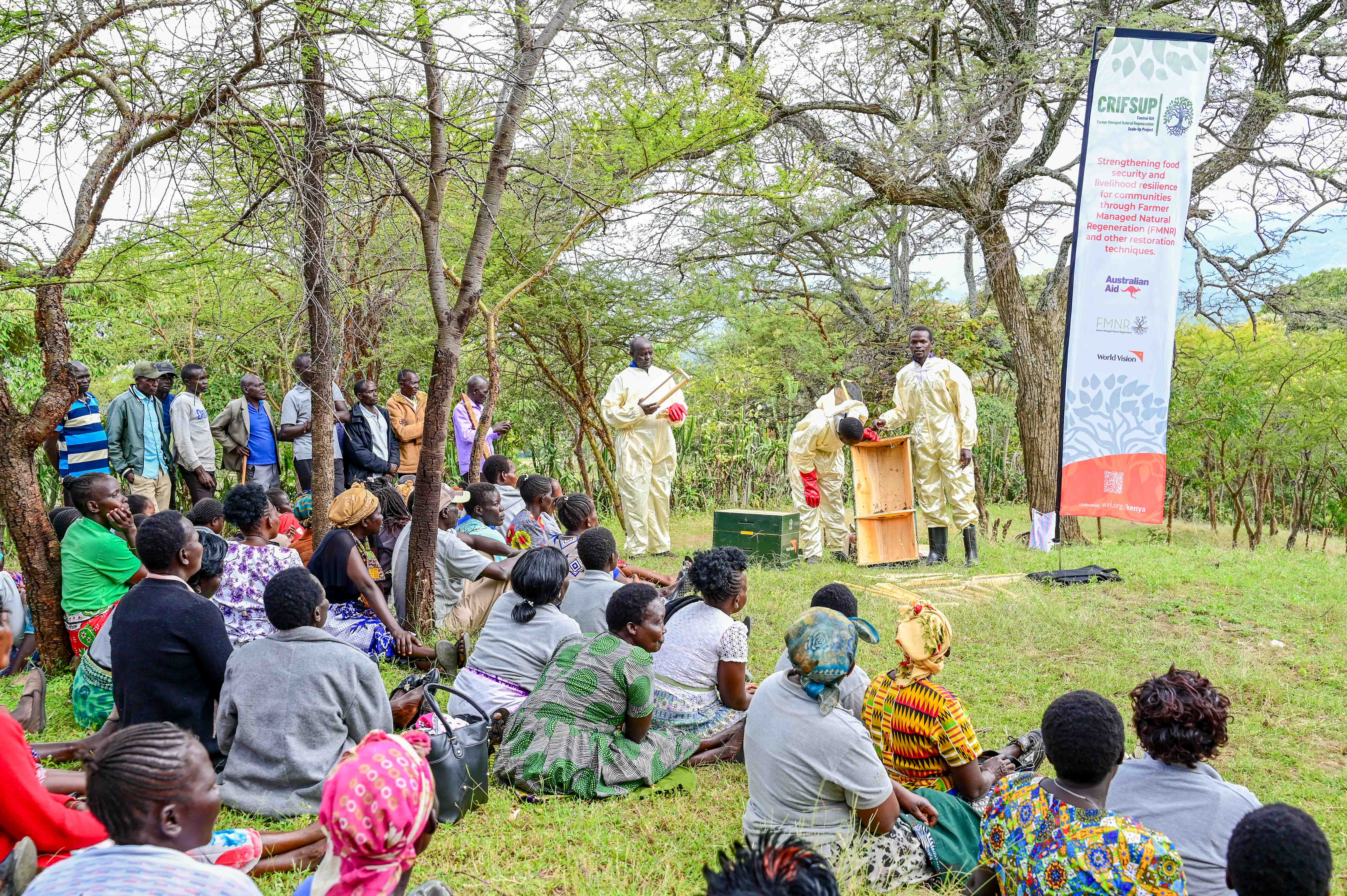
Richard highlights the income potential, explaining that Langstroth and Kenya Top Bar Hives yield 8kg and 10kg of honey respectively. With honey priced at 1,000 KES (approximately $8) per kilogram, even a small-scale operation can generate substantial revenue.
Celestine Pkemoi, Environmental Specialist and CRIFSUP Project Officer at World Vision, explains the symbiotic benefits: “FMNR-regenerated trees provide nectar, shade, and cooler microclimates for bees. In turn, bees enhance pollination, boosting crop yields. This cycle strengthens biodiversity, agricultural productivity, and climate resilience.”
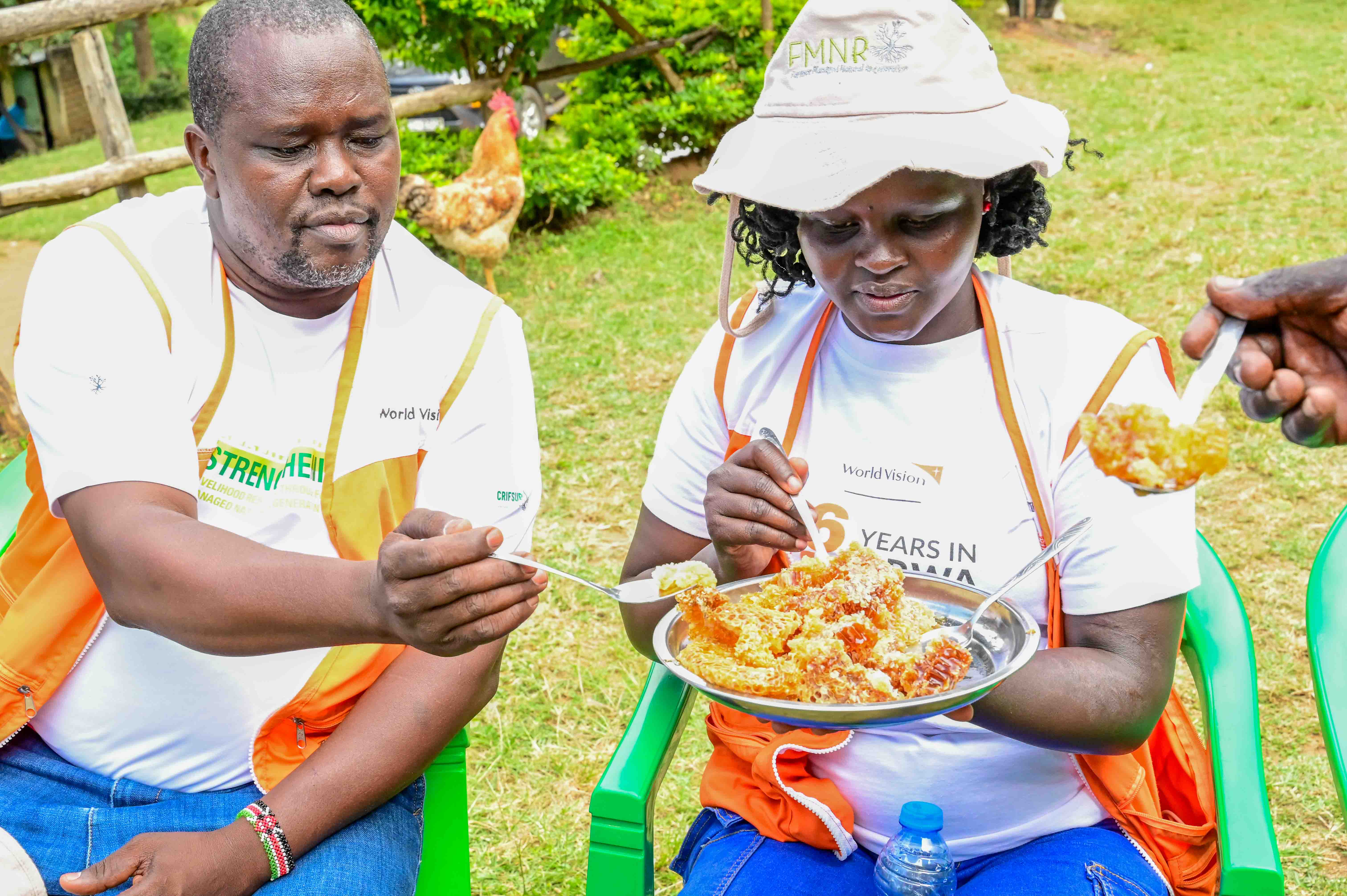
“One hive can earn 8,000 KES (Approximately $62) per harvest. Imagine 10 hives!” Richard adds. His earnings now surpass those from past casual work, and he mentors unemployed youth in his village. “I involve them in my beekeeping activities to foster skills and reduce idleness,” he says.
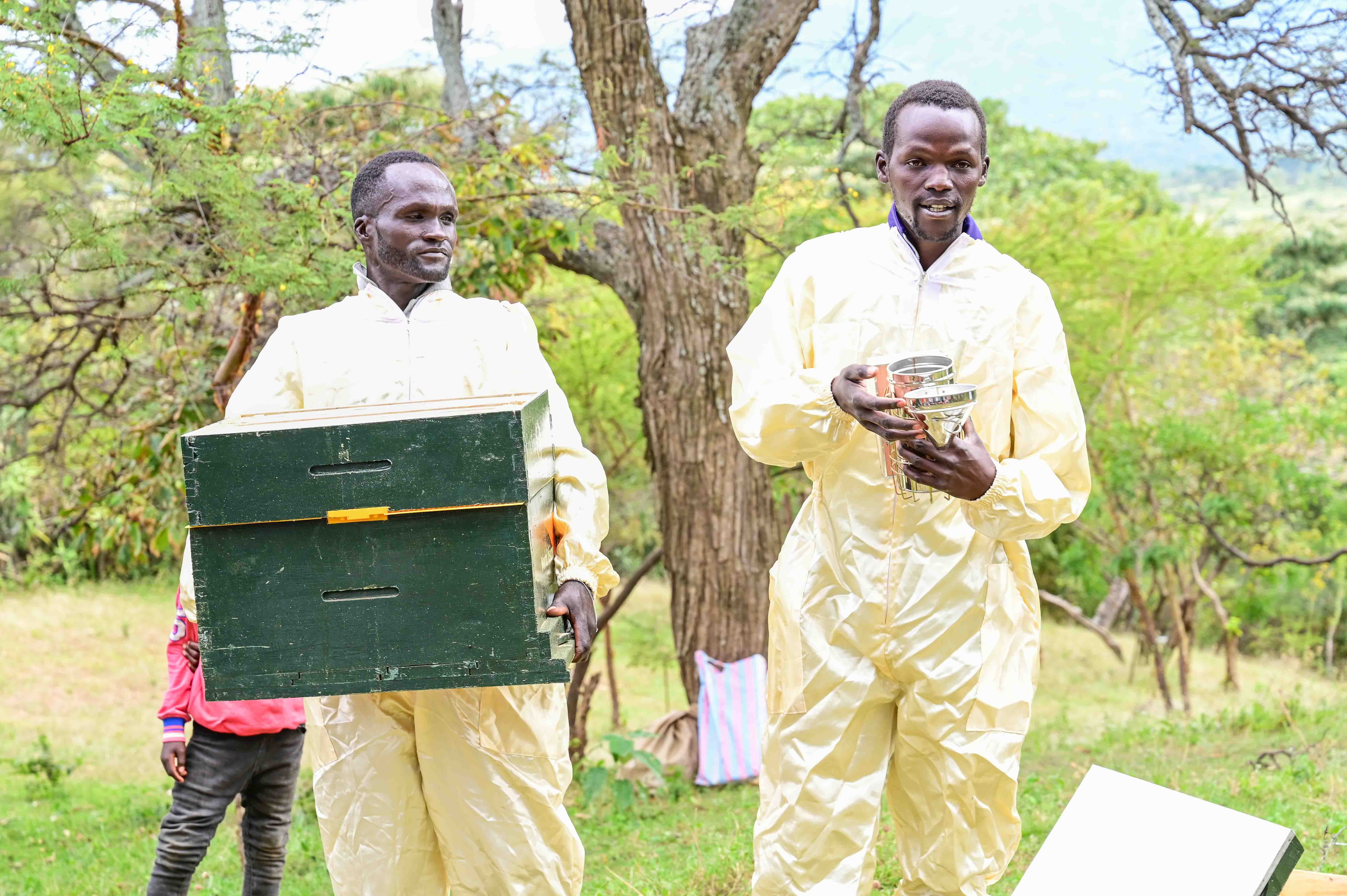
The CRIFSUP project has equipped Richard and 79 other youth lead farmers across Baringo, Nakuru, Elgeyo Marakwet, and West Pokot Counties with skills to build climate-resilient livelihoods. Looking ahead, Richard plans to open a dedicated beehive shop to expand his market reach.
His story underscores the transformative power of education, sustainable innovation, and community-driven action in tackling unemployment and environmental challenges.
By Hellen Owuor, Communications Specialist (CRIFSUP), World Vision Kenya